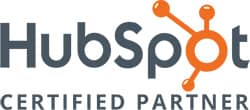Defining a target audience is simply a must for business success. But to stand out and produce a pipeline that delivers, it is wise to further refine your audience using persona marketing.
By implementing persona marketing, you allow yourself the opportunity to refine your audience into key segments creating ‘characters’. The way that each ‘character’ or persona experiences your brand will be influenced by their business needs, industry and of course, their demographics.
Getting to know your target audience in this way is a powerful tool that helps shape your marketing strategy. If you’re consistently generating unqualified leads from outside of your target audience, or your leads aren’t being generated at the rate they’re forecast to, it is likely your messaging is too generic. Persona marketing is a well developed technique best placed to help you meet and exceed lead generation and conversion targets.
What can persona marketing help with?
- Lead Generation: Identify with your audience and get to know them better – making them easier to target and tailor messaging.
- Lead Nurturing: Produce specific strategic content that appeals to your target audience to warm them along your sales pipeline.
- Client Satisfaction & Retention: Meet their goals and solve their challenges.
- Strengthened Strategy: Enhance overall marketing and sales performance.
Getting started:
Begin with a small number of personas and branch out as your original personas become more refined and sophisticated. Between 3 and 5 personas usually provide an accurate representation of the majority of your core audience, although it’s not unusual for large, complex businesses with a diverse product or service portfolio to develop up to 20 personas.
Using a template will help you to structure your personas into clear and concise sections. We recommend using:
- Name
– Say hello to Justin, Gary, Francis and Elizabeth – the persona names of our sister brand, Air Marketing. Gone are the days of simply numbering your personas… be creative (but realistic) and bring your persona to life by referring to them in conversation, email and strategy planning as their name. - Job title
– Setting a brief job title or business area alongside professional seniority informs interest, goals, frustrations and decision-making ability. - Company
– It may be useful for your business to define a company or industry to inform interest, goals and frustrations. - Demographics
– Use gender, age, income/salary, family, location and education to learn about what influences your target audience. - Background
– Role, decision-making ability, motivations, loyalty and professional interests. - Previous experience
– Educational experience and career path. - Personality
– Openness, conscientiousness, extraversion, agreeableness and neuroticism. - Goals
– Career goals, company goals, targets and responsibilities. - Expectations
– Expectations, values and ability to influence. - Frustrations
– Frustrations and restrictions. - Social
– Interests in social media, digital content, events, education, professional development and purchase behaviour. - Spare time
– Interests in music, sport, TV, travel and socialising.
A persona template can initially be optimised by considering core areas of your marketing activities. For example, if you use social media and/or print advertising, for each persona include what social media platforms they use and what publications they are likely to read.
Collecting data:
Team Meeting: Meet with team members who have regular interaction with clients. Knowing your clients best, your team can provide valuable insights, each with different perspectives. As a group, put yourselves in the shoes of clients so that you can fully immerse yourself in characterising them into personas.
Client Interviews & Surveys: Discuss with your team which clients may be open to participating in an interview or survey. If you prepare questions around your persona template, client interviews are a brilliant way to discover in-depth qualitative data.
Data Review: Reviewing analytics and lead scoring (if implemented), will provide quantitative data about the audience and leads currently being generated. This activity is useful if you are happy with the quality of leads but you are aiming to increase the number generated.
Market Research: If you’re working in a start-up, lacking raw able data or unable to reach out to existing clients, we recommend using reliable market research. Using market research alongside other data collection methods is an optimal mix for highly informed and accurate personas.
Implementation:
Consider personas throughout your marketing activity:
- Demand generation
– Target the right people in the right place at the right time. This will allow you to better meet client needs and generate marketing qualified leads (MQLs) with a clear website user journey including relevant landing pages, call-to-actions and forms. - Marketing strategy and planning
– Help shape strategy by determining a focus point for all marketing activity and attract more of those types of clients. - Digital marketing
– Easily analyse your campaigns – identify the best performing channels and platforms for your personas and use results to intelligently target prospects. - Direct marketing
– Start conversations with valuable marketing qualified leads (MQLs) via telemarketing, direct mail or direct email campaigns. - Content creation
– Blogs, articles, infographics, photos, videos, vlogs, podcasts and brochures are proven to increase lead generation and engagement if implemented effectively. Consider where content is broadcast, how it is used and change topics as new trends arise.
Optimisation:
We are all striving to continuously improve our business activities and make the most out of our opportunities. Take your persona marketing to the next level by:
- Testing and analysing to refine messaging and sharpen targeting.
- Reviewing on an annual basis, or ad hoc, when your target audience focus shifts to accelerate results.
- Using information to brief sales teams and outsourced telemarketers (see our sister company Air Marketing) for lead nurturing and conversion conversations.
- Produce negative personas to segment out ‘undesirable’ clients and avoid resource waste.
Reflecting on your own business and target audience, think about the quality and quantity of leads that you are generating, as well as the individuals that you are talking to. Are you consistently talking to your ideal clients?
If you think that your marketing could be improved through the implementation of personas, we would love to hear from you! Here at Roots to Market, we are driven by building intelligent marketing capabilities that generate demand and marketing qualified leads. Call 01392 796 702 or email contact@roots2market.co.uk





